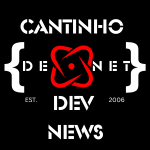
Workshop: Exploring Microservices Through Industry Examples

1. Embrace Infrastructure as Code Technology
Through this revolutionary technology, you no longer need to use manual configurations and physical hardware setups. It lets you do the provisioning and management of technology stacks through code. This streamlines how you manage and deploy the processes. You get to present the infrastructure configurations in a version-controlled format that is scriptable.
It also allows you to automate the provisioning of networks and servers, injecting more reproducibility and consistency. This approach makes collaboration seamless between you as a software developer and operations team, cultivating the DevOps culture. When choosing iac tools, concentrate more on the features. You want one that allows rapid deployment and is scalable. Check also the codifying attributes that matter in managing sophisticated systems across cloud providers.
2. Prioritize Soft Skills
Commit to soft skills as you strive to attain the necessary technical expertise. Every workspace needs great mastery of teamwork, problem-solving, and communication abilities. This profession is full of interactions with clients and collaboration with cross-functional teams, and this is where interpersonal skills come in.
You also won’t struggle to explain different ideas to the non-technical stakeholders, fueling your progress. This is crucial in the changing technological landscape, allowing you to connect with anyone and secure contracts. For you to master the soft skills, it’s essential to be patient and surround yourself with like-minded people.
Also Read: Top 10 Soft Skills for Software Developers
3. Continuous Learning is Key
The software industry is proliferating, with new frameworks and computer languages frequently emerging. Adopt a culture of progressive studying so that you’ll always be at par with the developments. Keep exploring new technologies by reading tech journals and resources from innovators.
It’s still good to look for online platforms offering different software-related courses. Whether you choose Udacity or Coursera, target sites with quality training and extensive materials pools. Come up with a priority list of the specific areas you would like to hone over time. As you learn more about cloud computing, artificial intelligence, and blockchain, your portfolio expands, making you a sought-after expert.
4. Contribute to Open Source Projects
More practice is instrumental in making you a sharp software developer. Keep finding every opportunity to try a new challenge, one way being finding open-source projects. Apart from the collaboration opportunities it presents, you also get a chance to showcase your abilities. It shows your commitment to solving shared societal problems, making you attractive to tech brands.
As you immerse yourself in the open source spaces, focus more on your abilities and interests. It will direct you to the suitable domains to which you’ll make meaningful contributions. It will also introduce you to new coding styles and dynamics of collaborative workflows.
5. Build a Strong Professional Network
Networking is fundamental in this career, allowing you to meet different developers and industry professionals. It becomes easy to spot individuals you can pair up and work together on specific projects. You’ll also connect with successful persons who’ll become mentors in your career path.
While attending local meetups is crucial for developing ties, finding online forums may also be great. Target top platforms such as Stack Overflow and GitHub and actively engage in the discussions. It will gradually broaden your horizons by channeling more hacks and concepts that you can incorporate into your work. Also, consider having a LinkedIn profile to foster more professional networks.
Endnote
The software development profession is not different from other careers regarding proficiency. You need to acquire the relevant skill set while embracing adaptability. This makes you stand out in the field, leading to your gradual growth and development.
The post 5 Tips for Software Developers to Excel in Their Careers appeared first on The Crazy Programmer.


